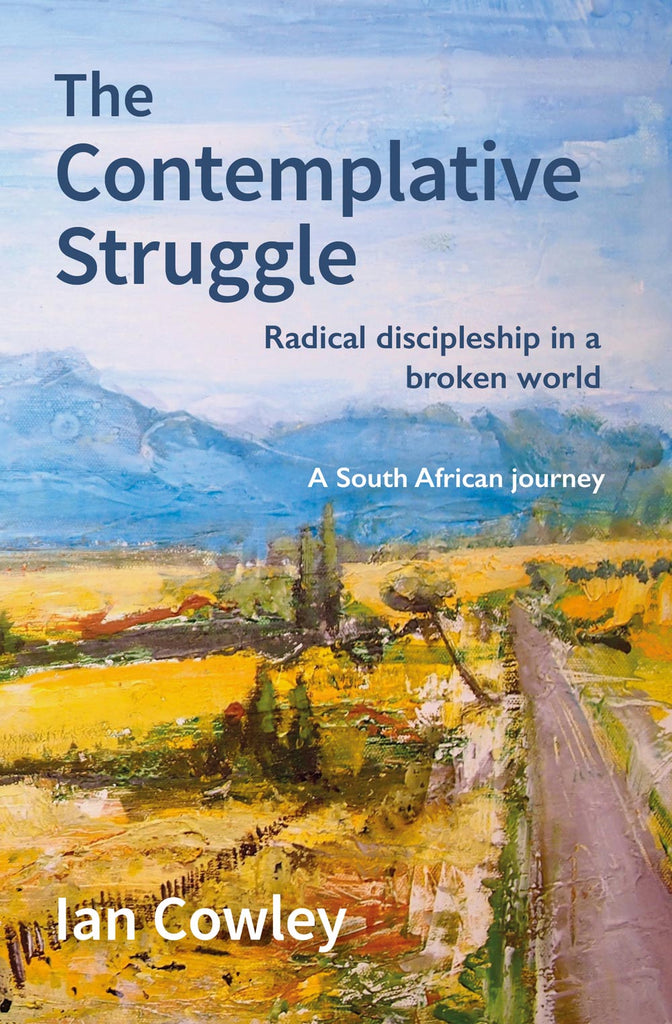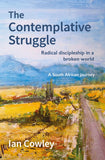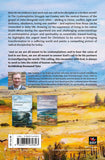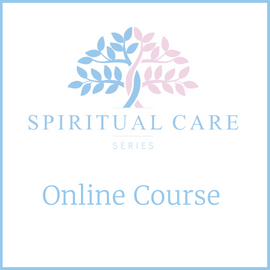The Contemplative Struggle: Radical discipleship in a broken world
Redefines contemplative spirituality for an activist culture
How do we embrace and work out our call to be disciples in a broken world? In The Contemplative Struggle Ian Cowley sets the central themes of the gospel of John alongside each other – abiding in Christ, conflict, light and darkness, obedience, loving one another – and explores how these can be reconciled in daily life. Drawing on his experience of living in his native South Africa during the apartheid era and challenging understandings of contemplative prayer and spirituality as essentially inward-looking, he highlights the urgent need for Christians to be active in bringing transformation to a suffering world and paints a compelling picture of radical discipleship for today.
| Title | The Contemplative Struggle: Radical discipleship in a broken world |
| Author | Ian Cowley |
| Description | How do we embrace and work out our call to be disciples in a broken world? In The Contemplative Struggle Ian Cowley sets the central themes of the gospel of John alongside each other – abiding in Christ, conflict, light and darkness, obedience, loving one another – and explores how these can be reconciled in daily life. Drawing on his experience of living in his native South Africa during the apartheid era and challenging understandings of contemplative prayer and spirituality as essentially inward-looking, he highlights the urgent need for Christians to be active in bringing transformation to a suffering world and paints a compelling picture of radical discipleship for today. ‘Just as we are all meant to be contemplatives and to hear the voice of God in our lives, we are all meant to answer God’s call to be his partners in transfiguring the world. This calling, this encounter with God, is always to send us into the midst of human suffering.’ |
| Details |
|
How do we embrace and work out our call to be disciples in a broken world? In The Contemplative Struggle Ian Cowley sets the central themes of the gospel of John alongside each other – abiding in Christ, conflict, light and darkness, obedience, loving one another – and explores how these can be reconciled in daily life. Drawing on his experience of living in his native South Africa during the apartheid era and challenging understandings of contemplative prayer and spirituality as essentially inward-looking, he highlights the urgent need for Christians to be active in bringing transformation to a suffering world and paints a compelling picture of radical discipleship for today.
‘Just as we are all meant to be contemplatives and to hear the voice of God in our lives, we are all meant to answer God’s call to be his partners in transfiguring the world. This calling, this encounter with God, is always to send us into the midst of human suffering.’
Archbishop Desmond Tutu
Ian Cowley is an Anglican priest who has served in parish ministry in South Africa, Sheffield, Cambridge and Peterborough. From 2008 to 2016 he was Coordinator of Spirituality and Vocations in the Diocese of Salisbury, where he set up and developed the Contemplative Minister programme. He is the author of five books on spirituality, discipleship and the local church.
Here is a much-needed book: the story of the battle against racism, injustice, poverty, held in tension with the necessity of time for contemplation. We need to hear it – there is much here that applies to our world today.
Esther de Waal, writer and scholar
I do appreciate Ian Cowley’s interleaving of storytelling with spiritual reflection. It is good to have the story of UCM told to a wider audience than South Africa.
Ian’s tribute to Steve Biko is welcome and true, and so is his account of white students’ struggle on the matter of conscription.
His major concern with contemplation fits well into his account of this crucial time in the South African church struggle...
John D Davies, former bishop of Shrewsbury and one-time national chaplain of the Anglican Students’ Federation of South Africa
What an incredible book this is! I was deeply moved reading it. It is very inspiring and ignited a hope that we can be agents of change in this world. As someone who has known the value of contemplative prayer and practice in my own life, it felt like a gentle call back to that which I know and love, without being remotely judgemental. In fact, the whole book brings a wonderful balance of challenge without condemnation.
I pray that all who read this book will examine afresh their response to the issues raised and explore the riches of contemplative prayer for themselves.
Louise Rose, community projects manager, Fresh Hope Ministry, Stamford
The Contemplative Struggle is a generous gift and a profound challenge. Ian Cowley draws on a deep well of (sometimes painful) personal experience to pour out this vision of contemplation in action. If you’re tired of rootless activism and otherworldly spirituality, and you’re looking for the common ground where prayer and protest can flourish, you need to read this book.
Chris Webb, deputy warden of Launde Abbey and author of God Soaked Life
Transforming Ministry Winter 2021. Review by Margaret Ives
There are many books about contemplative prayer as a way of finding one’s true self in an experience of the Divine Presence. This book is unusual in that, while it proclaims that the constant awareness of God in our lives is essential, this is not sufficient to solve our current problems unless it inspires us to ‘radical discipleship in a broken world’. Growing up in South Africa during apartheid, Cowley came to realise that ‘being rooted and grounded in love’ is not a hidden treasure, but must be demonstrated in action against racism and injustice. Looking back, he remembers how hope in God, arising from contemplative prayer, enabled him to work alongside the black consciousness movement in their struggle to change the system, even though the odds were against them. Similarly, he believes, Christians today must use a heightened awareness of God’s love for everything in creation to join with those combating climate change and environmental disaster. This is an inspirational book which does not get bogged down in polemics, but offers a guide to contemplative prayer and some practical steps we can all take towards saving the planet.
Reviewed by Margaret Ives
The Merton Journal Advent 2021 (Volume 28 no 2). Review by Ben Hopkinson
How ephemeral, and how localised, is our consciousness of history. That is why there have to be historians and history departments, because, so easily, what we know of the horrors some people are living through either goes quickly to the back of the mind or, by the next generation, becomes an unknown. Our attitude of localisation means that what happens to others may seem to have nothing to do with us. So Jewish people, for instance, have to campaign to keep the memory of the holocaust alive, and, while there may be an especially tense rivalry in games of football between England and Germany, how many remember what fascism really meant as a threat to the world? And Tiananmen Square?
I say this because Ian Cowley's short but powerful book finds the
origins of what was, to him, the revelation of prayer as contemplation, in the racial cauldron of South Africa in the depths of the apartheid regime of the last century.1 His epiphany came through the University Christian Movement when he was a student at the University of Natal in Pietermaritzberg in the 1970s. There he came to understand the terrible sinfulness of the racial divide that ruled South Africa, and his life's course was changed.
For me, Cowley's vivid account of South African life was a revision lesson. I was serving in Botswana at that time and, although it was a country with a quite different ethos, we in the Church were not isolated and were very aware of what was going on with our neighbours, not only South Africa but Rhodesia (now Zimbabwe) as well. I became peripherally involved in some anti-apartheid activity that crossed the border and drew me in, so I relate to Cowley's descriptions. I knew some of the people he talks about, and reading his book I was taken back to a time which, while key in my life, has been overlaid by layers of subsequent life and work. Even experience has an ephemeral quality.
Hence the thoughts about the ephemeral quality of contemporary
history. Who remembers even the word apartheid now, other than in an intellectual sense, apart from those who suffered it? The question applies even more strongly to those who are not South Africans. While there were, in Britain, some noble anti-apartheid activists who helped to cause profound change, their activity was outside the main stream of life and often looked upon with suspicion. Most people got on with life without worrying about South Africa. Now, bar Covid, that country is a favourite of tourists, who return to Europe unbrushed by a history that was all consuming at the time and still has many offshoots. Most were unborn when apartheid reigned.
I have to ask, then, whether for Cowley to use his South African life as a base for his argument is too esoteric. I hope not and I am sure it need not be, for not only does it gain great strength from being so personal, but it also makes us think into situations beyond our own circles. To think ourselves into apartheid South Africa is a good exercise.
'There were giants on the earth in those days' is a quotation which comes to mind.2 South Africa was then, and still is, an extraordinary country, captivating, in the sense of drawing you in until you are engrossed. It is a land of wonderful beauty but what astounded me even more were the people one met. The mass of the people are a very interesting historical and anthropological mix, with their histories, cultures and divisions, but I will concentrate on two smaller sets: those implementing the apartheid policy and those who opposed them, struggling for what was later called, by Archbishop Desmond Tutu, a 'rainbow nation'.
The first thing to say is that these people were honed by apartheid. The giant of apartheid was Hendrick Vervoerd, the SA president who was assassinated in 1966. He gave the philosophical basis to the National Party's policy of racial separation and white dominance, which was implemented ruthlessly. It was a giant endeavour, and the skills developed by the Bureau of State Security (BOSS) were second to none. Their use of technology was as sophisticated as possible for that time, and their information gathering work was everywhere. Furthermore, they knew what was going on elsewhere in the world, and could use it very cleverly in persuading people to conform.
The resistors were also people of exceptional knowledge, understanding and courage. There are great names: Nelson Mandela, Albert Luthuli, Helen Suzman, the Black Sash leaders, Beyers Naude, Trevor Huddlestone, Desmond Tutu, Steve Biko, to name but a few. But there were many, many more who worked and witnessed at continual risk to themselves, both from BOSS and also from being denigrated by the mass of whites happy with apartheid. Organisations like the University Christian Movement (UCM) were banned and many people had their passports removed or were put under house arrest. I felt both very fortunate and also hugely humbled to meet some of these women and men. I did not meet Ian Cowley, but I am confident that he would be of these giants.
One of the most noticeable aspects of the struggle against apartheid and for justice was how it had such a strong Christian motivation. I have to be careful here, because Christianity was active on both sides. The Afrikaner Dutch Reformed Church played a significant part in giving theological justification to apartheid, yet there were some notable DRC giants, the Bonhoeffers of their day, who rebelled against this, and were thrown out of the church. They played a great part. Nevertheless, it was very much among people from other churches that the understanding grew that the Christian law of love meant equality applied universally.
Cowley grew up on a Natal farm, with church, Anglican and formal, on Sundays, remembered as very boring. It was at university that faith caught him through the remarkable, if short lived, UCM. He describes how vibrant student worship attracted him and how he worked through the trauma - for it was a trauma - of mixing with people of other races and finding them human. After some vicissitudes, he hears his vocation to the priesthood in the Anglican Church of the Province of South Africa and eventually he comes to England, where he is first a parish priest and then Coordinator of Vocations and Spirituality in the Diocese of Salisbury, where he set up the Contemplative Minister Programme.
The great question that runs through the book is: what does it mean to be held firm in Christ in the centre of our being and to live with integrity in the 21st century? Through his student days he comes to see the sinfulness of the way power is held and exercised in South Africa, and to long for the justice that he discovers through his Christian faith. How does he hold the two in balance, so that the one undergirds the other? In other words, there is a double question: on the one hand, how can you be an activist, mixing in the hurly, sometimes unsavoury, burly of life and be true to Christ? On the other, how can you be true to Christ without, in some way, being mixed up in the difficult life of practising the love of neighbour in all its roughness? Through friends and mentors and the trial and error of trying to live a life for justice, with mistakes and setbacks and leaps forward, he discovers prayer as God's invitation to see the world with His eyes and to feel it as He feels it. He reads Merton and his development from longing to be solitary to understanding that the world needs the witness of the contemplative if it is ever going to overcome evil with good, and that means that the contemplative has to know and be known.
Now in South Africa the struggle against apartheid is over and an enormous wickedness has been demolished. In fact, though, when one injustice is stricken, the hydra of evil raises another. A strength of Cowley's book is that it is not only a memoir but makes use of his experience to show how Christian love is showing up many other aspects of life on the planet which threaten true human living, that is living as the people of God. As we are drawn in to the presence of God, how do we live with the divide of rich and poor and with other forms of inequality; with climate change; with war, national ambition and xenophobia; with the continuing oppression of peoples in many parts of the world; with homelessness in our own country? The list goes on and on. Simply, how do we help to make the world more Godly, restoring the creation which He saw was good?
Contemplative prayer is not shown as an opt-out but as the source of strength and ability. It is a struggle because of our fallen human nature, which is continually being pressed to sway one way or another. A hard struggle, but contemplation shows us how to 'put on the whole armour of God, for our struggle is not against the enemies of blood and flesh, but against the rulers, against the authorities, against the cosmic powers of this present darkness, against the spiritual forces of evil in heavenly places.'
The Contemplative Struggle is written to encourage us workaday Christians as we try to follow Jesus in our daily lives. In this it certainly succeeds, and the author adds an excellent introduction to contemplative practice as an appendix.
Two years ago I reviewed Ian Cowley's previous book, The Contemplative Response: Leadership and Ministry in a Distracted Culture. I suggested that it needed another volume, looking at how we can bring understanding of the love of God to the world outside the Christian community. In many ways this book does this, but may I ask Ian to set fingers to word processor once more and tackle the question of the contemplative response to the problems posed by today's atheists. When we talk of God in a universe of which astrophysics has revolutionised our understanding, how is He showing us how to talk of Him and act as His people? I find this an urgent question to stir the hearts of many. To ask an author for another book is, surely, a compliment.
Notes
1. Apartheid was the policy of segregation and political, social, and economic
discrimination against the non-white majority in the Republic of South
Africa. The extreme racial segregation of apartheid lasted from 1948 to 1994 and included such restrictions as where people of certain races could live or own land, what jobs they could hold, and who could and couldn't participate in government.
2. Genesis 6:4
3. Ephesians 6 :11-12.
Ben Hopkinson is a priest, living in retirement in Northumberland. He was in the kindergarten of contemplation in 2019 and has still to enter the reception class.
Church Times 25.06.21. Review by John D. Davies
Ian Cowley is a white South African man, born nearly 70 years ago, brought up in the benign rural environment of Natal. If he had fulfilled expectations, he would have become a conventional Anglican gentleman, a superior English-speaking member of the white race.
But Cowley’s life took a somewhat different course. His book is primarily about spirituality; but, to convey his message, he has to tell something of his life-story. This starts with his entry into the University of Natal in Pietermaritzburg, to study law and business administration. By the time that he started at university, the 1959 Extension of University Education Act had taken effect.
This created a scattered establishment of black tribal colleges, segregated on racial and ethnic criteria. The previously ‘open’ universities, in Johannesburg, Cape Town, and Natal, were restricted to white students only; they became white tribal colleges.
But there were vigorous national student bodies; these functioned on these segregated campuses, but they flourished as racially integrated organisations at regional and national level. For both black and white students, their conferences provided a converting experience, an alternative vision of society, where black and white people could meet as genuine friends and not only on a master/servant basis; and this was at a time when the apartheid machine was grinding ever more successfully, and when hope for change was wearing very thin.
The integrated organisations enabled the generation of courageous, independent-minded students, who were prepared to defy the expectations of parents, teachers, and government. They included the Anglican Students’ Federation and the ecumenical University Christian Movement. For Cowley, they opened up a whole new world. They brought him into contact with impressive characters of all race-groups, people such as the dynamic black students’ leader Steve Biko (who would, in my view, have become the natural successor to President Mandela, if he had not been cruelly done to death by the Security Police).
These ecumenical organisations were viewed with suspicion by some other Christians, notably by Evangelicals who had been caught up in the newly arrived Charismatic Movement. For them, the ecumenical groups were unbiblical humanists, dangerous quasi-Marxists. For the ecumenical types, the Evangelicals were pietistic, concerned only with their individual salvation, indifferent to the injustices experienced by most of the population. But, for those who were impressed by the Black Consciousness influence, this hassle was merely white people’s games, irrelevant luxury. The Anglican Bishop Alphaeus Zulu summarised their position: ‘We Africans have no need of a Charismatic Movement — we have always been charismatic, without any pressure from outside.’
People like Cowley were attracted by the Evangelical emphasis on conversion, but it had to include conversion from the heresies and illusions of apartheid, which were otherwise winning all the battles. A new ingredient was being discovered in the Christian mix. This was where Cowley found himself.
Cowley was deeply drawn to the insights of medieval spiritual teachers such as Richard Rolle and Thomas à Kempis, and Thomas Merton of our own day. This is the kind of commitment which underlies his book. Readers who are interested in spirituality will be attracted by his excellent summary of the discipline of contemplation. But, to get there, they will need to work through Cowley’s exploration of the demonic powers of racism, financial injustice, and indifference to the degradation of the environment.
His spirituality has been formed in a situation of loss, of oppression, of cruelty, when all the signs were that the powers of evil were winning. His kind of contemplation draws us to awareness of God’s critique of the disobedience in our human systems, and into commitment to the struggle for the realisation of God’s Kingdom.
And this is not only for South Africa; Cowley was ordained priest in his native land and served in parish ministry there. But he came to England some years ago, and has been a parish priest and adviser in spirituality in English dioceses. For South Africa and for Britain, his book provides a well-formed and personally validated guidance concerning the claims of our Creator upon our obedience and our energies.
The Rt Revd John D. Davies was National Chaplain to the Anglican Students’ Federation of Southern Africa, and Convener of the Council of Churches’ Commission which created the University Christian Movement
Review by Nicholas King SJ
Christians are often charged with being of 'no earthly use' (because their gaze is fixed on the heavens); evangelicals find themselves accused of giving insufficient time to contemplative prayer; white Christian South Africans often have it alleged against them that their discipleship is pure self-indulgence, because they benefited so largely from the sin of apartheid; and that the Roman Catholic tradition has nothing to offer Christians today. In this splendid book, those four myths are soundly 'busted': Ian Cowley is an evangelical Christian who has given himself to transform this unjust world into something that looks like the Kingdom of God; he has for many years as a busy Anglican priest given himself over to the practice of solitary contemplative prayer (and offers some useful tips about how to approach it). More than that, he is a white South African whose Christianity drove him, at some considerable cost, to engage in student activism against the apartheid regime, and who reveals his immense admiration for Steve Biko, who died that appalling death in the hands of the SA Police. He has, moreover, drunk gratefully of the waters of the Roman Catholic contemplative tradition, including Thomas a Kempis, Richard Rolle, and that remarkable Cistercian monk, Thomas Merton. He has, besides, the Protestant gift of a solid grasp of Scripture and the awareness that it can change your life. He was also alert to the dangers of environmental pollution at a time when such interests were dismissed as mindlessly sentimental “tree-hugging”. Nowadays we wish that more students had followed his example, half a century ago. This book is to be warmly recommended.








